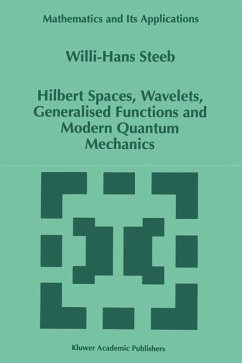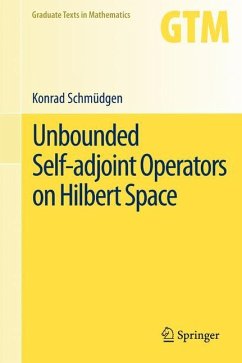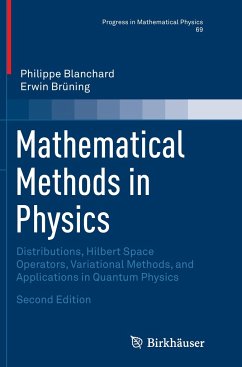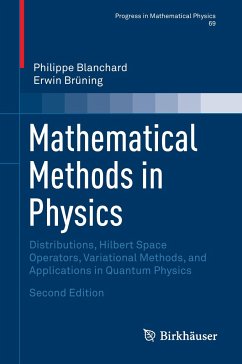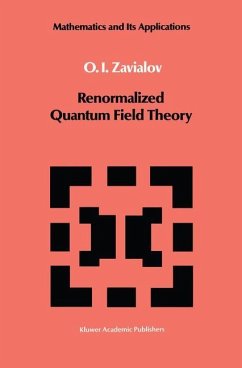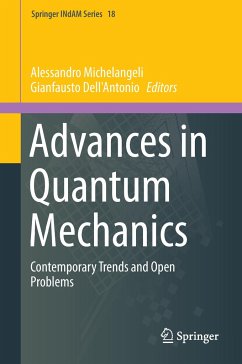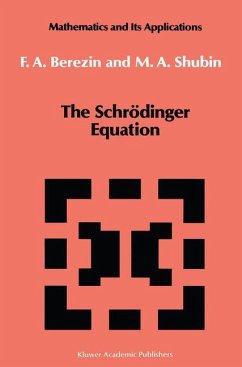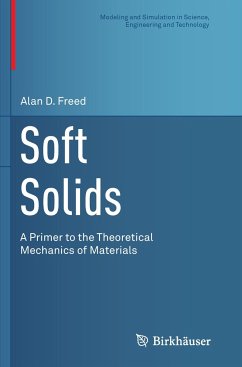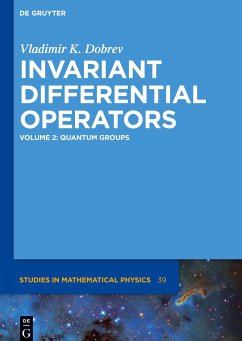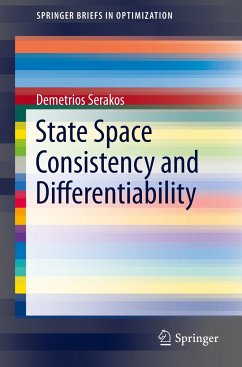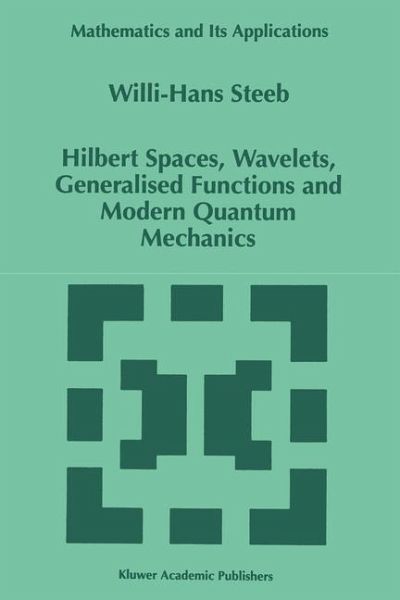
Hilbert Spaces, Wavelets, Generalised Functions and Modern Quantum Mechanics
Versandkostenfrei!
Versandfertig in 6-10 Tagen
76,99 €
inkl. MwSt.
Weitere Ausgaben:

PAYBACK Punkte
38 °P sammeln!
This book provides an introduction to Hilbert space theory, Fourier transform and wavelets, linear operators, generalized functions and quantum mechanics. Although quantum mechanics has been developed between 1925 and 1930 in the last twenty years a large number of new aspect and techniques have been introduced. The book also covers these new fields in quantum mechanics. In quantum mechanics the basic mathematical tools are the theory of Hilbert spaces, the theory of linear operators, the theory of generalized functions and Lebesgue inte gration theory. Many excellent textbooks have been writt...
This book provides an introduction to Hilbert space theory, Fourier transform and wavelets, linear operators, generalized functions and quantum mechanics. Although quantum mechanics has been developed between 1925 and 1930 in the last twenty years a large number of new aspect and techniques have been introduced. The book also covers these new fields in quantum mechanics. In quantum mechanics the basic mathematical tools are the theory of Hilbert spaces, the theory of linear operators, the theory of generalized functions and Lebesgue inte gration theory. Many excellent textbooks have been written on Hilbert space theory and linear operators in Hilbert spaces. Comprehensive surveys of this subject are given by Weidmann [68], Prugovecki [47], Yosida [69], Kato [31], Richtmyer [49], Sewell [54] and others. The theory of generalized functions is also well covered in good textbooks (Gelfand and Shilov [25], Vladimirov [67]. Furthermore numerous textbooks on quantum mechanics exist (Dirac [17], Landau and Lifshitz [36], Mes siah [41], Gasiorowicz [24], Schiff [51], Eder [18] and others). Besides these books there are several problem books on quantum mechanics (Fliigge [22], Constantinescu and Magyari [15], ter Haar [64], Mavromatis [39], Steeb [59], Steeb [60], Steeb [61]) and others). Computer algebra implementations of quantum mechanical problems are described by Steeb [59]. Unfortunately, many standard textbooks on quantum mechanics neglect the math ematical background. The basic mathematical tools to understand quantum me chanics should be fully integrated into an education in quantum mechanics.





